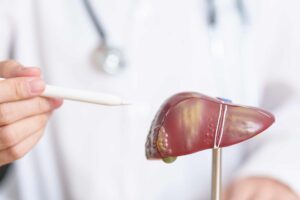Giorgia Guglielmi
Giorgia Guglielmi is a freelance science writer based in Basel, Switzerland. Specializing in life sciences, medicine, and the relationship between science and society, she has published numerous articles in outlets including Nature, Science, and Scientific American. She holds a PhD in biology from the European Molecular Biology Laboratory and a Master’s in Science Writing from the Massachusetts Institute of Technology. She has received recognition for her work, including the John Kendrew Award in 2020 and an ERC-funded FRONTIERS Media Fellowship in 2025. She has also led lectures and workshops on science communication at institutions such as Harvard University and the University of Zurich.
Nutrition
A recent study highlights the role of specific obesogenic microbes suggesting potential interventions through targeted regulation of M. rupellensis and myo-inositol metabolism.
Gastroenterology, Gynecology
The findings of a recent study highlight the critical role of the gut microbiota in maternal and infant health, especially in the context of GDM.
Gastroenterology, Nutrition
The findings may help to identify new biomarkers for food addiction and assess whether beneficial bacteria could serve as potential new treatments for compulsive eating.
Gastroenterology
The findings indicate that MAIT cells act as detectors of gut inflammation by interacting with the microbiota.
Oncology
The balance of specific microbes in the gut can help predict who will respond to immunotherapy drugs.
Pediatrics
Maternal fecal microbiota transfer in babies born by caesarean section can help to correct alterations in microbiota composition.
Pediatrics
The findings of a recent study suggest that environmental factors are important for the development of a healthy microbiota.
Gastroenterology, Geriatrics
Understanding how gut microbes influence biological processes related to aging may inform interventions aimed at optimizing the microbiota to promote longevity.
Gastroenterology, Scientific research
The findings of a recent study suggest that combining dietary fiber with B. acidifaciens can be a therapeutic strategy for alcoholic liver disease.
Immunology, Scientific research
The findings suggest that artificial intelligence can help uncover new antibiotics, opening the way for new approaches to antibiotic discovery. The work also offers an open-access resource for antibiotic developers.











